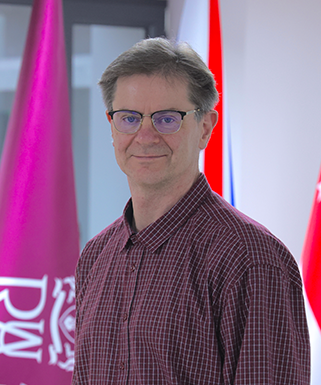Sergei Yazvenko, PhD., Ecologist
Sergei Yazvenko has over 35 years of academic teaching, research and management experience in complex multidisciplinary studies in various ecosystems around the world, including the Central Asia, Caucasus, Canada, USA, Russia (Central and Northern Russia, Siberia, Pacific Far East), Greece, Albania, Italy, Turkey and Ukraine. He conducted academic research and taught at Lomonosov Moscow State University (8 yrs), University of Waterloo (2 yrs), University of Guelph (1,5 yrs) and, currently, International Agriculture University (IAU), Tashkent, Uzbekistan, where he has taught a wide range of modules: one MSc course (Applied Natural and Environmental Science) and four BSc courses, i.e., Soil and Environmental Science, Crop Production Science, Agriculture and Farming, and Animal Science.
As an invited professor, Dr. Yazvenko taught a BSc level course “Nutrition, Health and Society” at Qingdao Agricultural University, China (2024).
In 1992-2001 Dr. Yazvenko was a member of PRAP/MRAP, a large international team of archeologists and paleoenvironmental scientists led by Prof. Jack Davis, University of Cincinnati. He conducted a reconstruction of paleovegetation in Greece (Pylos) and Albania (Apollonia) from the early Bronze Age to the Medieval time, using fossil pollen, stable isotopes and AMS carbon (C14) dating.
In 1992 Dr. Yazvenko moved to Canada where he conducted research as a post-doctoral fellow at the University of Waterloo and then University of Guelph. In 1994-96 he studied fire dynamics, evolution and health of Ponderosa pine ecosystem in the western USA.
In 1996 Dr. Yazvenko joined LGL Limited, the largest Canadian independent ecological research and consulting company, and over the course of the next 25 years he directed or was involved in numerous ecological and environmental projects all over the world. His main research and consulting activities focused on the study of vegetation in the mountains and arid lands, biodiversity, hydrology, functions, land degradation and human impacts on ecosystems. Dr. Yazvenko has extensive expertise related to climate change and its impact on various ecosystems. His PhD Thesis dealt with the long-term history of mountain forests in the Caucasus Mts in relation to changing climate. He also managed the execution and was senior author of reports and papers on potential climate change effects on various Arctic and boreal ecosystems, from Greenland to Yamal to Chukchi Sea. But he also has a long-term interest in the ecosystems of Central Asia that started with his study of the birds in Pamir-Alai Mountains and his work “Umbelliferae of Karatau Range, Kazakstan”.
From 1996 on, Dr. Yazvenko has worked on a variety of habitat, vegetation, and riparian studies and ecosystem restoration projects. In 1999-2000 he participated in a large multiannual radiotelemetry study of juvenile salmon in Columbia River, USA. In 1999, he participated in a synthesis study of ecosystem integrity, hydrology, and restoration strategies for Burns Bog (Vancouver), one of the largest raised bogs along the Pacific coast of North America. The aim of the study was to conduct a comprehensive ecosystem review of the bog and surrounding ecosystems in order to develop a strategy to preserve its ecological integrity, determine the factors crucial to preserving Burns Bog as a viable ecosystem, including hydrology, geology, flora and fauna of the bog.
In 2001 LGL became advisor to ExxonMobil and SEIC (a Shell-led O&G consortium) on marine mammals of Sakhalin Island in Russia. Dr. Yazvenko played a key role in managing this long-term project, working with Russian and international scientists. This data-intensive research focused on critically endangered Western gray whales, their distribution, biology, feeding and behavior, responses to noise, satellite tagging to reveal their migration routes, and photo-identification of individual whales. The result of this mega-project (2001-2019) was that Western gray whales turned from one of the most mysterious into one of the best studied whale populations in the world.
In 2007, Dr. Yazvenko designed and managed a long-term study of rare plants and wetlands (with the emphasis on vegetation and hydrology) along 800+ km long SEIC oil and gas pipelines on Sakhalin Island in Pacific Russia. The main objectives were to monitor the status of the vegetation and rare plant localities along the pipelines through the life of the project. In 2008 he developed and led the execution of a highly technical research program aimed to study and quantify the impacts of the Kinbasket reservoir inundation regime on riparian ecosystems in British Columbia. Dr. Yazvenko has managed studies assessing vegetation, rare plants, rare plant associations and weeds along oil and natural gas pipelines in Canada. Various vegetation and impact studies in western Canada continued through 2019.
Over his career, Dr. Yazvenko has written or co-authored 32 peer-reviewed research papers and book chapters and over 70 technical reports in the areas of plant ecology, population genetics, and taxonomy, wetlands, long-term environmental change, ecosystem restoration, math. methods in ecology, biology of gray whales, and human impact on various ecosystems.
